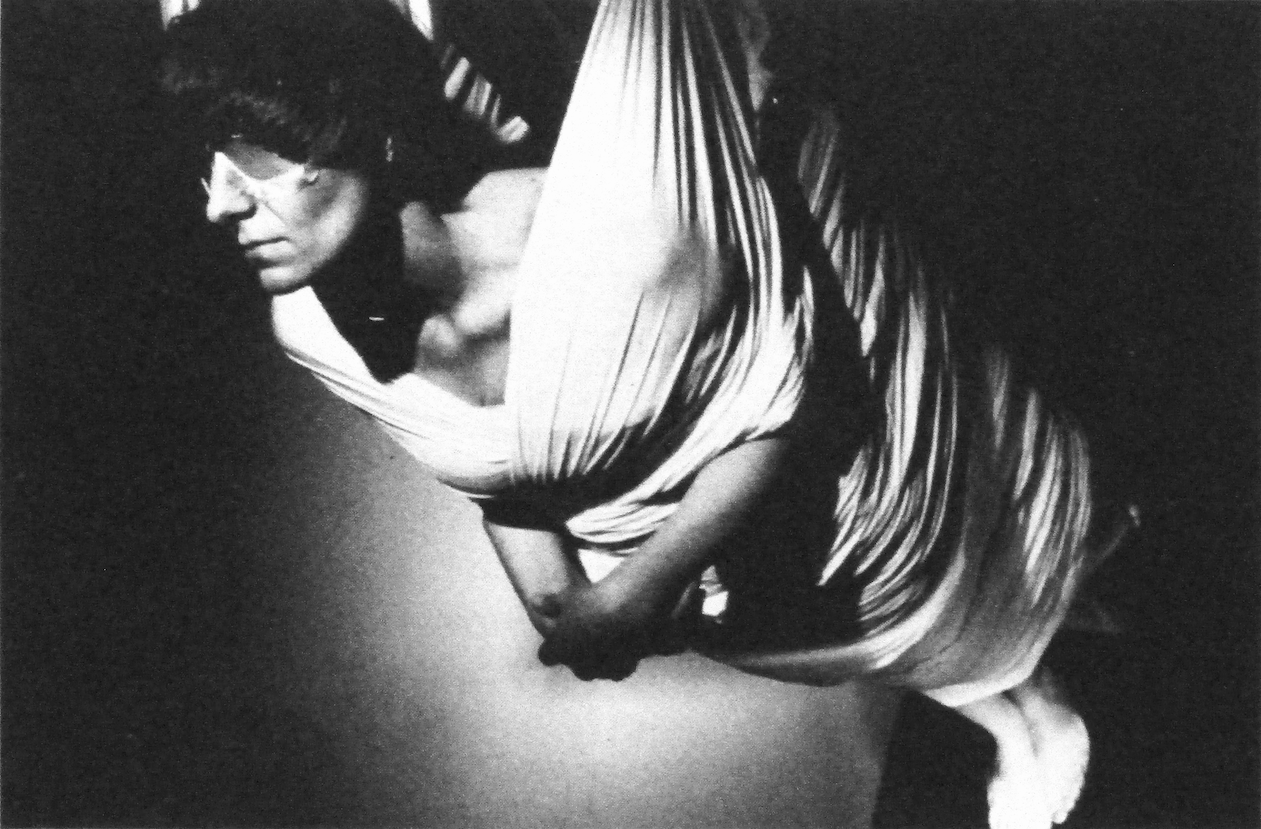
●
I was adopted at the age of fourteen. I had three mothers and two fathers.
One mother died of cancer in the stomach, another has been dying of cancer of the womb since 1952. One father had epilepsy as the result of a war injury. The left side of his body was partially paralyzed and he was half blind. I had a sister who died in infancy. I have a brother whom I have not seen for eighteen years. I married a man whom I left after four years. I lived with another for twelve years. In 1985 I changed my name to "Festa."
●
FISH, BREAD, AND BODY
For three days I wear fish compresses. I purchase fish at the supermarket and tie them with white surgical gauze to my left arm, leg, and neck. With the fish attached to my body I spend three days baking bread. The second day I am sick and throw up in the toilet. On the third day, a few friends come. We eat the bread and drink wine and herb tea. Wasps and flies are attracted to the rotting fish on my body and swarm around me.
In the supermarket where I buy more fish and flour a customer tells me how in Japan people tie fish to trees when someone dies.
Someone else asks me if I recommend fish compresses for sore throat.
●
This is what interests me in the end: the degraded spectacle, voyeuristic intrusions into private lives, rarified images supplanting the ambiguous experience of everyday life, the interruption, when things fall apart which have never been together. And here I see my work as performing for others convertible lenses that magnify on one side and reduce on the other. Except that when everything else is said and done, I continue to bleed more or less in spite of myself. I can imagine it never stopping, going on forever. But I remember the basic paranoia of not really having been. I confess powerlessness by a continued (re)production of superseding values and poses. I do not know of any position that my body can take up without being implicitly pornographic. This, I think has less to do with the body itself, which I do not know what that is, but with the body as a kind of cavity.
You have decided that you do not have to take account of your position.The ethics of it, I mean. And so you bury your senses of failure and rejection in denial and withdrawal, signifying pointedly your sense of superiority: the project of suspending the hierarchy of roles, the ascendancy of your sense of disbelief. And it was not until you began by using your fear and insecurity as a weapon in self-defense with the intention of cutting deep, that I began to see your fear as my terror: the ways of undermining what finally and supremely threatens our deepest sense of belonging. And yes, I see how it cannot be any other way. And yet I am not a fatalist. To think of responsibility even when there are no choices has been from the beginning my failure.
I had this repeated dream about "the front" as they called it. It was late in autumn, the air cold and crisp. The fields were empty and bare. The men were coming toward me as I stood naked in the field. They shot with their rifles at me. But I did not die. I could not die. All I could do was just stand there, my white belly exposed like a fish, raw and shiny. I was seven years old and had never seen a man. I had never seen my mother and my father sleep together. His head was still bandaged from the trepanning. The gauze was soaked with blood. She lay on top of him, mirroring the large blue female torso tattooed forever on his chest. I have thought about it like alabaster, like lightning. A scream going out the door like a ghost. Even me. Dying. You could be next. Behind the hillside, many are lost. Green faces and yellow feet. Father slept in the kitchen, and TB and I slept with mother in her bed. Once I woke up in the middle of the night, crying. I couldn't talk. I sat at the foot and of the bed and cried. I had shat into my mother's bed and I could not remember doing it. It was just there. And I had done it. And because I could not die, the men opened up my belly and filled it with stones and propped up the body against a tree and began to shoot again. They were saying to each other: "We must heal these wounds.
We must heal these wounds."
I covered the chair with a red blanket. I let it fall in a large drape. A gesture of indirect solutions.